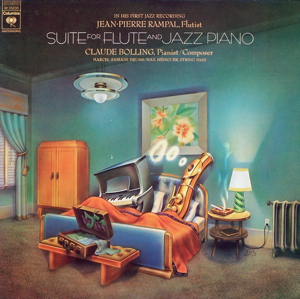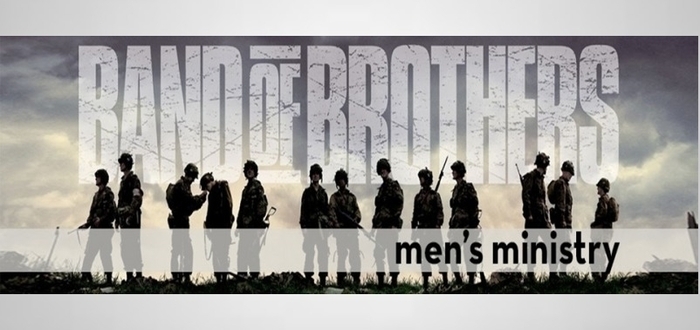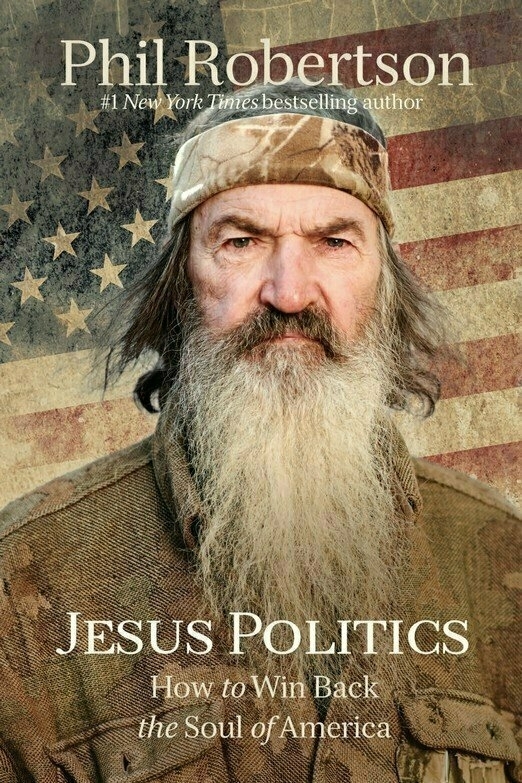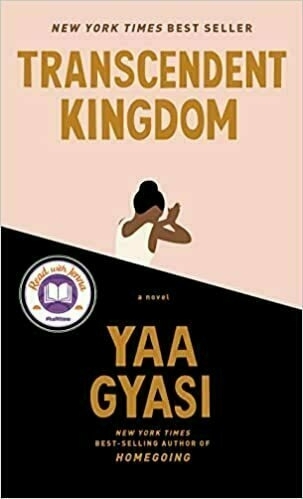Category: Longform
You are viewing all posts from this category, beginning with the most recent.
Geof F. Morris, 1978-2022

Geoffrey Franklin Morris, 43, of Madison, Alabama, died today at Vanderbilt Medical Center in Nashville. He is survived by his wife Danielle, his parents, his brother Doug, his dog Lucky, and hundreds of friends around the world.
Geof was born in Knoxville, TN in 1978. The younger son in a military family, Geof spent time in San Antonio, Texas and Beavercreek, Ohio before eventually settling in Forest, Mississippi in 1990 after his father retired from the Air Force. He attended high school at The Mississippi School for Mathematics and Science, where his love for engineering and science led him not only to pursue a career focused on outer space, but also led him into the early days of social communities on the internet. Geof attended the University of Alabama Huntsville and graduated with a degree in Aerospace Engineering and an undying love for UAH Chargers ice hockey.
Geof’s career started at Teledyne Brown Engineering (TBE) where he designed equipment and managed projects building science equipment destined for the International Space Station. After a brief hiatus from the aerospace world to work for Wordpress, Geof got a job at NASA where he eventually became a flight controller for the ISS. One of Geof’s great joys in life was being on comms with astronauts and walking them through daily procedures.
Geof had an amazing passion for online community. In high school he frequented online bulletin board discussions. He was fond of reminding friends that he had interacted directly with Tom Clancy in bulletin board discussions about Clancy’s novels. Later on, Geof’s love of the band Caedmon’s Call and their tight-knit fan community would prompt him to create and administer an online forum for them. “Rocksmyfaceoff.net” (RMFO to its regulars) was an active community for more than a decade in the early 2000s, and continues to this day in nooks and crannies of the social internet. Geof embraced Twitter when it was a new service and had posted over 100,000 tweets before many others were even aware of what Twitter was. He was a prolific blogger who was always looking to support the online communities he benefitted from. His website is full of thoughts on social sharing, technical advice, and concert bootleg recordings.
Geof was just as generous and gregarious in person as he was online. Whether you had known him for years or were just meeting him for the first time, he would put you at ease with his friendly conversation. He seemingly knew everyone, and would quickly introduce and connect you to others who he thought you should know. His meticulously-managed contact list included award-winning musicians, astronauts, internet tech royalty, an NHL goalie, and a whole bunch of normal mundane people. No matter who you were he would pay attention to personal details and important dates; mention your anniversary on Twitter one year and the next year he would wish you a happy anniversary, having captured that info about you the year before.
Along with wanting to work on space projects, Geof not so quietly wanted to fall in love with a pretty girl and get married. If she were a redhead, that would be a bonus. That wish came true for him in 2014 when he met a young red-headed NASA engineer named Danielle. Geof and Danielle married in 2015 and lived happily at their home near Huntsville until his passing.
Geof loved UAH hockey, the Boston Celtics and Bruins, Wilco, Radiohead, Caedmon’s Call, and The Big Lebowski. But mostly Geof loved people. Whether you were an astronaut or a random college kid, Geof treated you with respect and as an equal. He is mourned today by hundreds of friends and communities that are the product of his life-long labors of love.
Waiting for the Lightning
For a guy who loves music, I’ve never been the guy who finds and falls in love with an artist on their first album. From my youth I have tended to find bands on their second or third album - probably the popular one - then gone back and learned their back catalog.
In high school, this meant getting to know Michael W. Smith through Go West Young Man and then backing up to appreciate i2EYE; falling in love with Rich Mullins’ Liturgy, Legacy record and then going back to Never Picture Perfect, and bypassing my brother’s recommendation of Caedmon’s Call until their producer insisted on some highly uncharacteristic horns on the title track of Long Line of Leavers that sucked me in. (Self Titled or 40 Acres? I still can’t decide which is their best record.)
As an adult I wasn’t into Coldplay until X&Y and then belatedly recognized the brilliance of Parachutes and Rush of Blood to the Head. I met U2 via All That You Can’t Leave Behind and still probably don’t sufficiently appreciate Achtung Baby and The Joshua Tree. And then there’s Arcade Fire.
I’m sure I’d heard of Arcade Fire from friends at some point early on. Neon Bible had a lot of buzz in my Twitter follows. Somehow it just never caught my ear. But then The Suburbs came out in late 2010, somewhere in the winter I picked it up on an AmazonMP3 $3.99 sale (remember those days?), and in spring 2011 when I trained for a half-marathon, it was my running music. (Somehow my initial download from Amazon missed the first two tracks, so for a long time I thought the album started with “Modern Man”. Not sure when I realized I was missing songs.)
The albums we really fall in love with are the ones we identify with somehow. When Rich Mullins sang “my folks we were always / the first family to arrive / with seven people jammed into / a car that seated five”, my heart ached in recognition of our own 7-member family adventures in undersized, well used cars. When Andrew Osenga sang “my tiny baby’s breathing / deeper every day / soon she’ll leave her crib forever”, I resonated with the heart of a kindred new father. And when Win Butler lamented “oh, this city’s seen so much / since I was a little child / Pray to God I won’t live to see / the death of everything that’s wild”, mid-30s suburban dad me felt it in my core. The Suburbs burrowed its way into my heart like few albums ever have.
Arcade Fire’s fire burns hot. Band leader Win Butler grew up in Houston. His wife, Régine Chassagne, is from Montreal but has roots in Haiti. He grew up Mormon and majored in religious studies at McGill. They aren’t a “Christian band” and say they don’t really practice religion, but their songs give voice to the Gen X disillusionment with and deconstruction of establishment Christianity that many of us have experienced. In “Here Comes the Night Time”, using the voice of Haitians to reject the legalistic strictures of white Christianity:
They say heaven’s a place
Yeah, heaven’s a place, and they know where it is
But you know where it is?
It’s behind the gate, they won’t let you in
And when they hear the beat coming from the street
They lock the door
But if there’s no music up in heaven,
Then what’s it for?
When I hear the beat
My spirit’s on me like a live-wire
A thousand horses running wild
In a city on fire
But it starts in your feet, then it goes to your head
And, if you can’t feel it, then the roots are dead
And if you’re the judge, then what is our crime?
Here comes the night time
Or in “City With No Children” where the young rebel starts to wonder if he is slowly becoming the establishment:
You never trust a millionaire
Quoting the sermon on the mount
I used to think I was not like them
But I’m beginning to have my doubts
My doubts about it
When you’re hiding underground
The rain can’t get you wet
Do you think your righteousness
Can pay the interest on your debt?
I have my doubts about it
The rock is strong, the band is large, the music sometimes cacophonous, always intense, always pulsating with a righteous intensity.
The Suburbs was nominated for Best Album of the Year at the 2011 Grammy Awards. I remember the currents in my Twitter stream from those of us who knew and loved the band. They were up against Eminem, Lady Gaga, Katy Perry, Lady Antebellum… there was no way they could win. Was there?
Barbra Streisand and Kris Kristofferson announced the award and clearly had no idea, reading the award card, whether The Suburbs was the name of the band or the album. But there it was, Album of the Year.
The band had been backstage, getting ready to play a song to close the show. They came out, accepted their Grammy, then Win set it down on his amp and away they went with “Ready to Start”. Always live, always real, always ready to play.
In 2014 they went on tour with their new album Reflektor. The novelty for that tour was asking fans to dress up (think evening wear) to attend the show. One week in the fall of 2013, before the album released, I was on a work trip in Montreal and they announced a show at a small club nearby the hotel I was staying at. With only a $10 entry fee. I chose that night to go eat dinner with my co-workers rather than stand in line for a chance to get into the show. I’ve never forgiven myself for that decision. I finally saw them on that tour later in the year at the Target Center in Minneapolis. It was the first and likely last time I’ll ever wear a necktie to a rock concert.
Last week Arcade Fire released WE, their first new record in five years, and their first good one in nine years. (Can we just pretend Everything Now didn’t happen?) Where The Suburbs captured the frustration of 30-somethings realizing the unescapable strictures of the modern world, WE expresses the resistant hope of 40-somethings coming through the COVID era. The Suburbs Arcade Fire were parents of small children; the WE Arcade Fire now see their kids growing up and leaving.
Lookout kid, trust your heart
You don’t have to play the part they wrote for you
Just be true
There are things that you could do
That no one else on earth could ever do
But I can’t teach you, I can’t teach it to you
In “The Lightning I”, the strain of the past decade weighs heavily:
We can make it if you don’t quit on me
I won’t quit on you
Don’t quit on me
We can make it, baby
Please don’t quit on me
I won’t quit on you
Don’t quit on me
I never quit on you
This seamlessly transitions into “The Lightning II”, which brings a weary hope to the middle of tired frustration.
I heard the thunder and I thought it was the answer
But I find I got the question wrong
I was trying to run away, but a voice told me to stay
And put the feeling in a songA day, a week, a month, a year
A day, a week, a month, a year
Every second brings me hereWaiting on the lightning
Waiting on the lightning
Waiting on the light
What will the light bring?
Once again my heart resonates with an artist. . Waiting on the lightning, yes. Hopeful that it will come. And yet shaken enough from the past 5 years of madness to have to ask the question - what will the light bring?
Essential Jams: ”Fugace” from Bolling’s Suite for Flute and Jazz Piano Trio

So much to love about this. I wanted to find a recording that wasn’t the canonical Bolling/Rampal version… this one is pretty great. I love the way the flautist starts the theme and the trio looks at each other as if to say ”wow, this tempo is hot”. (I checked and they are playing it right at the tempo of the canonical recording.)
Such a joyful piece, and by the time they get to the final restatement of the theme as a swinging four-piece band (say, about 3:20 in the video), how can you not have a smile on your face?
In my best world I would have a flautist, drummer, and bassist I could play this with. So much fun. Enjoy!
Easter 2022
Christ is risen! Alleluia!
This morning Becky and I attended church in person for the first time since COVID struck. It’s been more than two years. It was our first time at this church—we left our last one during the pandemic. Even having watched services from this new place many times online, it felt odd to attend in person.
The oddest thing for me, though, was that I was only attending, not leading in some way. Absent from Easter for the first time in my adult life was any music rehearsal. I didn’t show up 90 minutes early. I didn’t play music for 3 services. I came, worshipped, shook the pastor’s hand on the way out, and was back home before 9:30.
Reporting my attendance back to friends on Twitter, I asked rhetorically: is it even Easter if I haven’t rehearsed and played music at 3 services?
That question led to a more sober line of questioning. How much of my understanding of service and worship has been formed, or malformed, by a lifetime of working somehow at church every time the door was open?
Every pastor will affirm that ministry is work. I can’t help but think, though, that something is broken when I leave church thinking was it even really worship if I’m not exhausted on the way out?
Two years of church non-attendance have led me to reconsider what faithfulness in the way of Jesus looks like in daily life. Restarting attendance now prompts a new exploration: what it looks like to meaningfully participate in a church without it regularly leading to exhaustion.
Take my yoke upon you, and learn from me; for I am gentle and humble in heart, and you will find rest for your souls. For my yoke is easy and my burden is light. — Jesus
Eerie Parallels
Last night I started reading Dr. Susannah Heschel’s The Aryan Jesus: Christian Theologians and the Bible in Nazi Germany. Having not gotten any further than the introduction there are eerie parallels between the support the German church gave to Nazism and the support the American evangelical church is giving to the MAGA movement. A few samples:
The German Christian movement was faction within the Protestant church of Germany, not a separate sect, and eventually attracted between a quarter and a third of Protestant church members. Enthusiastically pro-Nazi, the movement sought to demonstrate its support for Hitler by organizing itself after the model of the Nazi Party, placing a swastika on the altar next to the cross, giving the Nazi salute at its rallies, and celebrating Hitler as sent by God.

The three ideological prongs of the German Christian movement within the Protestant church, as Doris Bergen has delineated, were its opposition to church doctrine, its antisemitism, and its effort to craft a “manly” church…
German Christians appropriated Nazi rhetoric and symbols into the church to give its Christianity a contemporary resonance.

Theological conclusions regarding Jesus’s teachings and his interactions with the Jews of his day were shaped into a rhetoric that endorsed Nazi ideology, making Nazism appear to be realizing in the political sphere what Christians taught in the religious sphere.

On to chapter 1….
My 2021 Reading in Review
With 2022 well underway (for the past 10 hours or so) it’s time to review my reading in 2021. As usual, my entire reading log for last year is over on Goodreads. This year my reading was influenced by a reading group I joined that focused on books by black, indigenous, and queer authors. (It was a fantastic group, and I’m sad to see it end.)
Running the numbers
I finished 79 books this year, which is in my usual neighborhood. Of those, 34/78 were written by women, but only 17/78 were written by non-white people. As a friend put it when posting his reading lists yesterday, let’s just say that leaves lots of opportunity for reading in 2022!
Top Non-Fiction
Hard to rank these, but some very good ones:
- All About Love, bell hooks (RIP)
- The Order of Time, Carlo Rovelli
- The Unbearable Wholeness of Being, Ilia Delio
- Redeeming Power, Diane Langberg
Of these, hooks spoke about love in beautiful ways, Langberg spoke truth about the mess in the evangelical church, and Rovelli and Delio made my mind hurt in the best ways talking about time and quantum theory and evolution.
Top Religion / Theology
This is a big enough chunk of reading to be its own category. Recommended here:
- A More Christlike Word, Bradley Jersak
- Jesus of the East, Phuc Luu
- Latina Evangelicas, Loida I. Martell, Zaida Maldonado Perez, Elizabeth Conde-Frazier
- The Making of Biblical Womanhood, Beth Allison Barr
The gentle Canadian Jersak again focuses us on Jesus; Luu explores the similarities between a Jesus-centered Christianity and the tenets of Eastern spirituality; Martell, Perez, and Conde-Frazier write a short systematic theology from a Latina perspective, and Barr writes a challenging history of “Biblical womanhood”.

Top Fiction
This is fiction that I read this year, not necessarily published this year. I always have catching up to do…
- The Sparrow, Mary Doria Russell
- Transcendent Kingdom, Yaa Gyasi
- The Just City, Jo Walton
I could order the first two either way. The Sparrow is broadly about Jesuits sending missionaries to an alien planet and more directly about outsiders assuming they know best and wrestling with what God really wants. Transcendent Kingdom is a stunning exploration of race, depression, addiction, and immigration. And The Just City explores what would happen if a city were set up based on the principles of Plato’s Republic. So much creativity and imagination, so little reading time.

Books that you probably won’t entirely agree with but will challenge you
How to Be an Antiracist, Ibram X. Kendi — Is there a more controversial topic the past couple years in this country than race? Kendi speaks strongly about the need to be actively anti-racist, in a “if you’re not actively with us then you’re against us” sort of way. Challenging.
The Inescapable Love of God, Thomas Talbott — Talbott (an ethics professor and theologian) makes his case for universal reconciliation in Christ. I found his arguments compelling. I read through the back-and-forth that he and John Piper had after the fact; I found Piper’s arguments much less compelling.
The Right to Sex, Amia Srinivasan — Sharp, wonderfully-written essays by a young woman exploring the dynamics and ethics of sex and power in the 21st century.
Queer Theology, Linn Marie Tonstad — I’m sorry to confess that I would’ve been highly unlikely to pick up a book titled “Queer Theology” if my book club hadn’t pushed me to do so. Boy am I glad I did, though. I hope that I have grown enough this year that I would not be put off again.

So that’s my 2021 reading sorted. Pretty sure I could read 80 books in 2022 and still not have my to-read shelf cleared off. Happy reading, friends!
Keeping theology coupled with cosmology
I was introduced to Dr. Ilia Delio a couple weeks ago on a podcast. Her thoughts about God, evolution, and the quantum realm fascinated me such that I went right to Amazon and bought three of her books. This morning I started in on the first one (The Unbearable Wholeness of Being) and ran across this stunning thought in the introduction:
Raimon Panikkar said that when theology is divorced from cosmology, we no longer have a living God but an idea of God. God becomes a thought that can be accepted or rejected, rather than the experience of divine ultimacy. Because theology has not developed in tandem with science (or science in tandem with theology) since the Middle Ages, we have an enormous gap between the transcendent dimension of human existence (the religious dimension) and the meaning of physical reality as science understands it (the material dimension). This gap underlies our global problems today, from the environmental crisis to economic disparity and the denigration of women.
Ilia Delio, The Unbearable Wholeness of Being, p. xix
She’s going to have to do some convincing for me to accept the conclusion of the last sentence, but the bigger thought that our theology needs to continue to develop along with our cosmology so that they can be coupled in a way that God is more than an “idea” in the modern age is one I’m going to be chewing on for a while. Looking forward to the rest of this book!
Beck: Nationalism and the search for meaning
Richard Beck, on his Substack today, on American nationalism resulting from the need for deep meaning:
…for most of human history, we achieved deep meaning by a connection with an ancestral people. Our tribe, kin, and clan. These relations gave us a history and roots.
But with the rise of the modern nation state, especially with such a rootless nation of immigrants like America, our identities have become increasingly associated less with a tribe than a state, a flag, a country. I am who I am–I matter, I have worth–because I’m an American.
It’s an easy observation that American nationalism is characterized by pride in the country, but Beck’s piece pushed me to think more about how Americans, and especially Christian Americans, could be helped away from the more vitriolic forms of nationalism by finding more meaning in other parts of their self-identity—perhaps specifically in their Christian faith.
Beck, again:
Without deep meaning Americans achieve self-esteem via the status of the nation. You elevate the stature of the nation and you elevate the worth, value, and dignity of its citizens. Make America great and you make its people great. There is a primal pull here, rooted deep in the limbic system. It’s not abstract, but a raw, visceral ground of dignity.
How can I encourage other Christians to find more deep meaning and identity in their faith instead of (or even more than) their country?
Fascinating: 5th Century Byzantine Basilica honoring Female Ministers found in Israel
Reported at Haaretz.com on Monday:
The Holy Mother Sophronia. Theodosia the deaconess. Gregoria the deaconess. These are some of the women lovingly memorialized at a magnificent Byzantine basilica that Israeli archaeologists have uncovered in the southern city of Ashdod.
The splendidly mosaiced church, built in the fourth or fifth century C.E., is being hailed as one of the earliest and largest Christian basilicas found in Israel. It is also one of the most unusual, partly due to the number and prominence of graves and inscriptions dedicated to female ministers. Then as now, women in the clergy were usually overshadowed by their male counterparts.
So much church history that is still lost to us… neat to see this glimpse into ancient Christian practice.
The Teaching vs. The Teacher
The last couple days I’ve been reading a book of theology by an author I was heretofore unfamiliar with. I know and trust a couple of the guys who endorsed it, though, so I plowed in and I’m generally enjoying it and on board with what the author has to say. Curious to find out more about him, I headed over to his website, which then pointed me to his Twitter. And what I found there? Oh dear.
This author of a thoughtful book championing love as the highest law has a Twitter account full of vitriol against our current President, frequent retweets of the loudest and most thoughtless conservative pundits, and images comparing vaccine mandates to Nazism. I was stunned by the incongruity. The people I know who endorsed his book (written in 2017) are thoughtful, gentle people who aren’t rabid politically in either direction. So what’s up with this guy? Even more, his website offers the reader a chance to sign up for his “Discipleship Course”. Do I really want to be discipled by someone like that? And, more challengingly, what do I do with his book when his recent demeanor seems so troublesome?
I tweeted briefly about my quandary, and my friend Matt (a teacher who always seems to ask good questions) asked my thoughts about learning from the approach/perspective rather than the person. And that got enough thoughts going that they merited a blog post rather than a tweet thread.
How can or should we separate the teaching from the teacher?
On one hand, Jesus was the only perfect teacher, so literally anyone else that we learn from is going to have issues. And yet there are those who have taught truth whose behavior is so disqualifying that it brings into question the integrity of everything they taught.
That behavior could be unrelated to their teaching or their methods. J. H. Yoder was the classic example of this quandary. It is perhaps easier, though, to think abstractly about an obscure Mennonite ethicist who abused women than it is to consider examples more fresh and prominent in our memory: men like Ravi Zacharias, Bill Hybels, or Jean Vanier. Did (or should have) their behavior have disqualified them from teaching? Absolutely. When we find out about their behavior after absorbing their teaching, how should we reconsider it? That’s hard.
Then we have the case of this author where the behavior directly brings me to question the teacher, because his online behavior seems so out of line with the principles he’s teaching, and because the judgment and logic and reasoning skills he’s displaying on Twitter make me wonder whether I should question the judgment, logic, and reasoning in his book.
Ultimately, I need to evaluate the teaching separately from the teacher. But if I start seeing a pattern where people who teach these things also act that way, I want to factor that in to my evaluation. Correlation isn’t causation… sometimes.
Then there’s the question of discipleship. As a Christian, my aspiration is to be a “little Christ”. If I disciple myself by attending to teachers who are impulsive, caustic, and illogical — even if they are teaching true principles in that way — I shouldn’t be surprised if I learn to be impulsive, caustic, and illogical myself.
But what about the flip side of that? Surely just because a teacher is kind, gentle, patient, loving, and self-controlled doesn’t mean they’re correct, does it? Well… maybe not. But what does Jesus say in Matthew 7?
Are grapes gathered from thorns, or figs from thistles? In the same way, every good tree bears good fruit, but the bad tree bears bad fruit. A good tree cannot bear bad fruit, nor can a bad tree bear good fruit. Every tree that does not bear good fruit is cut down and thrown into the fire. Thus you will know them [prophets, teachers] by their fruits.
Matthew 7:16-20, NRSV
In the case of this particular book and author, I think I’m going to end up on the side of agreeing with the book even though the author is problematic. Partly because I think the principles hold up regardless of the teacher, but also partly because there are other teachers I know who are saying the same thing and who provide very compelling examples of living out the fruit of the Spirit and Jesus’ kingdom principles. But am I gonna follow the guy on Twitter to keep learning from him? Nope.